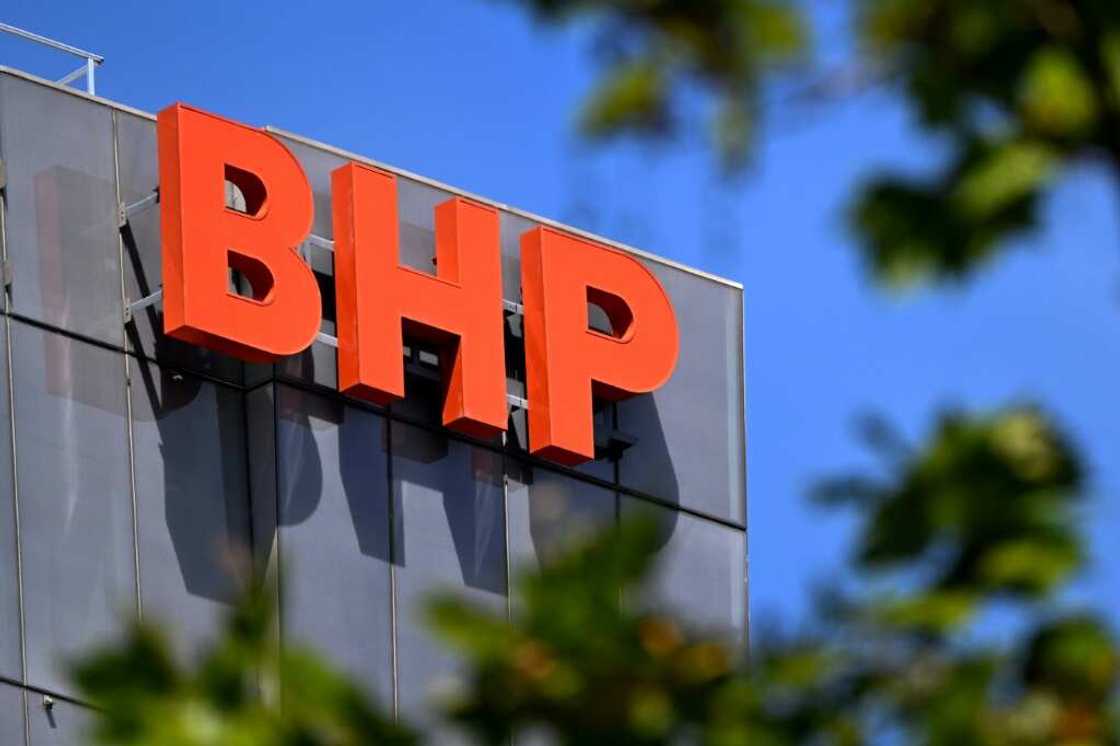Anglo American rejects BHP's improved takeover bid

Source: AFP
PAY ATTENTION: The 2024 Business Leaders Awards Present Entrepreneurs that Change Nigeria for the Better. Check out their Stories!
Australian mining giant BHP revealed Monday that British rival Anglo American has rejected an "improved" takeover bid worth £34 billion ($43 billion) as it aims to create a copper titan.
BHP's latest colossal offer, which seeks also to reshape the global mining landscape, comes after its initial £31.1-billion, or $39 billion, approach had been rebuffed last month.
"The revised proposal was rejected... BHP is disappointed that the Anglo American board has chosen not to engage with BHP with respect to the revised proposal and the improved terms," the company said in a statement.
An Anglo spokesperson declined to comment on the news when approached by AFP.
BHP has lifted the number of shares that would be given to Anglo investors under the improved terms. And it still plans to split off Anglo's platinum and iron ore subsidiaries in South Africa, with shares split between the British firm's shareholders.
'Disappointed'
"BHP put forward a revised proposal to the Anglo American Board that we strongly believe would be a win-win for BHP and Anglo American shareholders," said BHP chief executive Mike Henry.
PAY ATTENTION: Click “See First” under the “Following” tab to see Legit.ng News on your Facebook News Feed!
"We are disappointed that this second proposal has been rejected," he added.
The new bid was pitched at approximately £27.53 per share, up from about £25 per share that had been slammed by Anglo as "highly unattractive" and "opportunistic" in April.
The latest offer would increase Anglo's share of the new combined group to 16.6 percent, up from 14.8 percent previously.
"BHP and Anglo American are a strategic fit and the combination is a unique and compelling opportunity to unlock significant synergies by bringing together two highly complementary, world class businesses," added Henry.
"The combined business would have a leading portfolio of high-quality assets in copper, potash, iron ore and metallurgical coal and BHP would bring its track record of operational excellence to maximise returns from these high-quality assets."
'Any deal won't come cheap'
In late afternoon deals on the London stock market, Anglo American's share price sank 0.3 percent to £27.64, while BHP dipped 0.2 percent to £22.93.
Anglo's stock has been boosted since the initial approach as traders bet on a possible bidding war with other mining giants like Glencore or Rio Tinto.
"The second rejected bid (from BHP) highlights a confidence that any prospective deal won't come cheap," Scope Markets analyst Joshua Mahony told AFP.
"With speculation over the potential involvement of another suitor, BHP will have to move swiftly and decisively if they are to strike a deal that would move shareholders to let go of Anglo."
The global mining industry has been wrestling with the transition away from traditional money makers such as gas and coal, increasingly eyeing opportunities to mine metals and critical minerals.
Targeting copper
BHP remains keen to obtain the group's global copper assets that include operations in Chile and Peru and become the world's biggest-listed copper producer.
Copper is essential to the world's transition to renewable energy because it is a vital component for greener technology like energy storage, electric vehicles, solar panels and wind turbines.
The price of copper has soared over the past year as a result and Anglo American expects the trend to continue.
"It is no secret that BHP are specifically targeting Anglo American copper assets," added Mahony.
"For traders and the wider FTSE 100, the prospect of an ever higher price should bring potential volatility in the weeks ahead."
Copper last month surpassed $10,000 per tonne for the first time in two years, with analysts citing strong demand and tight supplies that could be stretched further by BHP's bid proposal.
PAY ATTENTION: Unlock the best of Legit.ng on Pinterest! Subscribe now and get your daily inspiration!
Source: AFP




